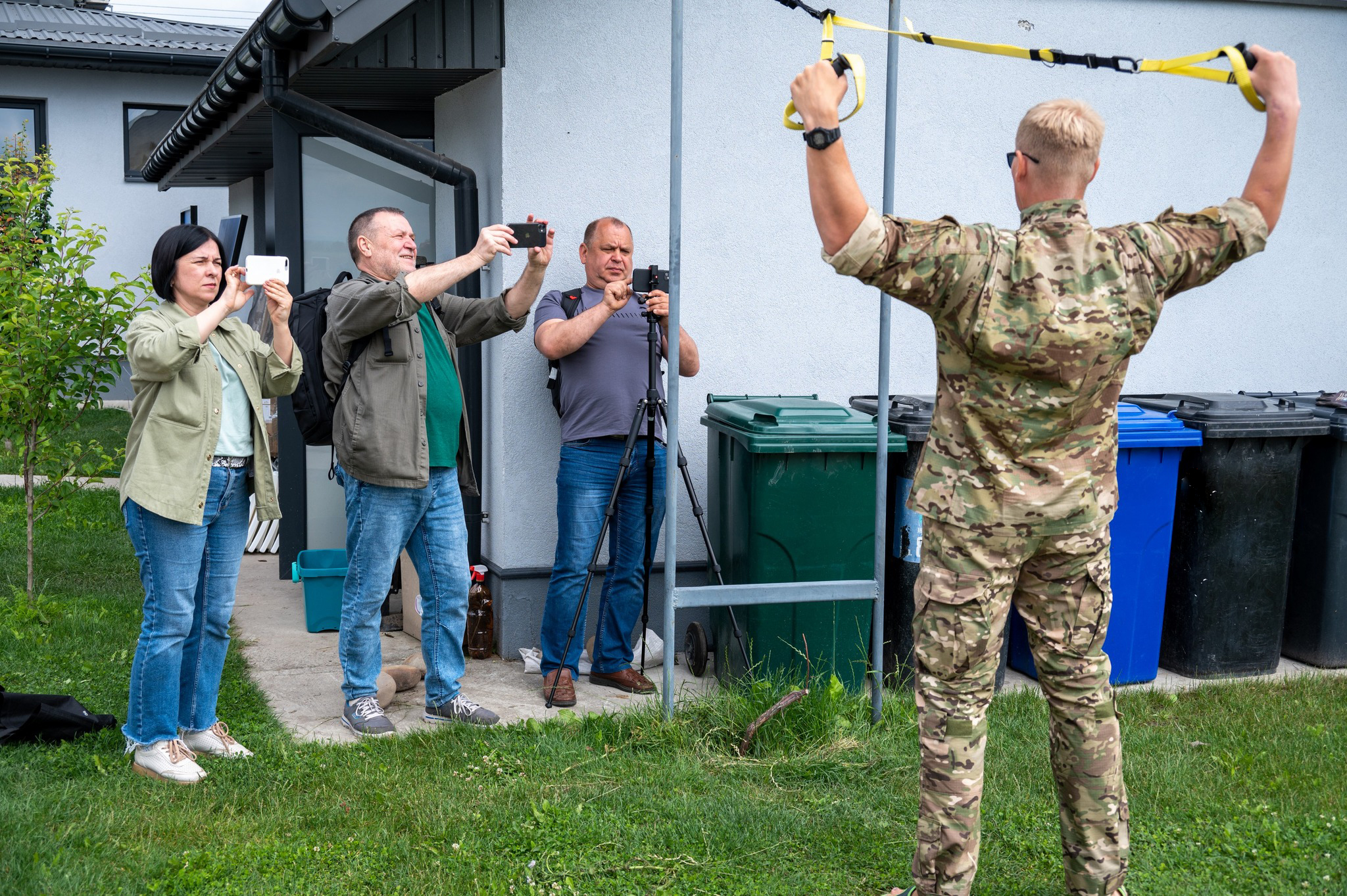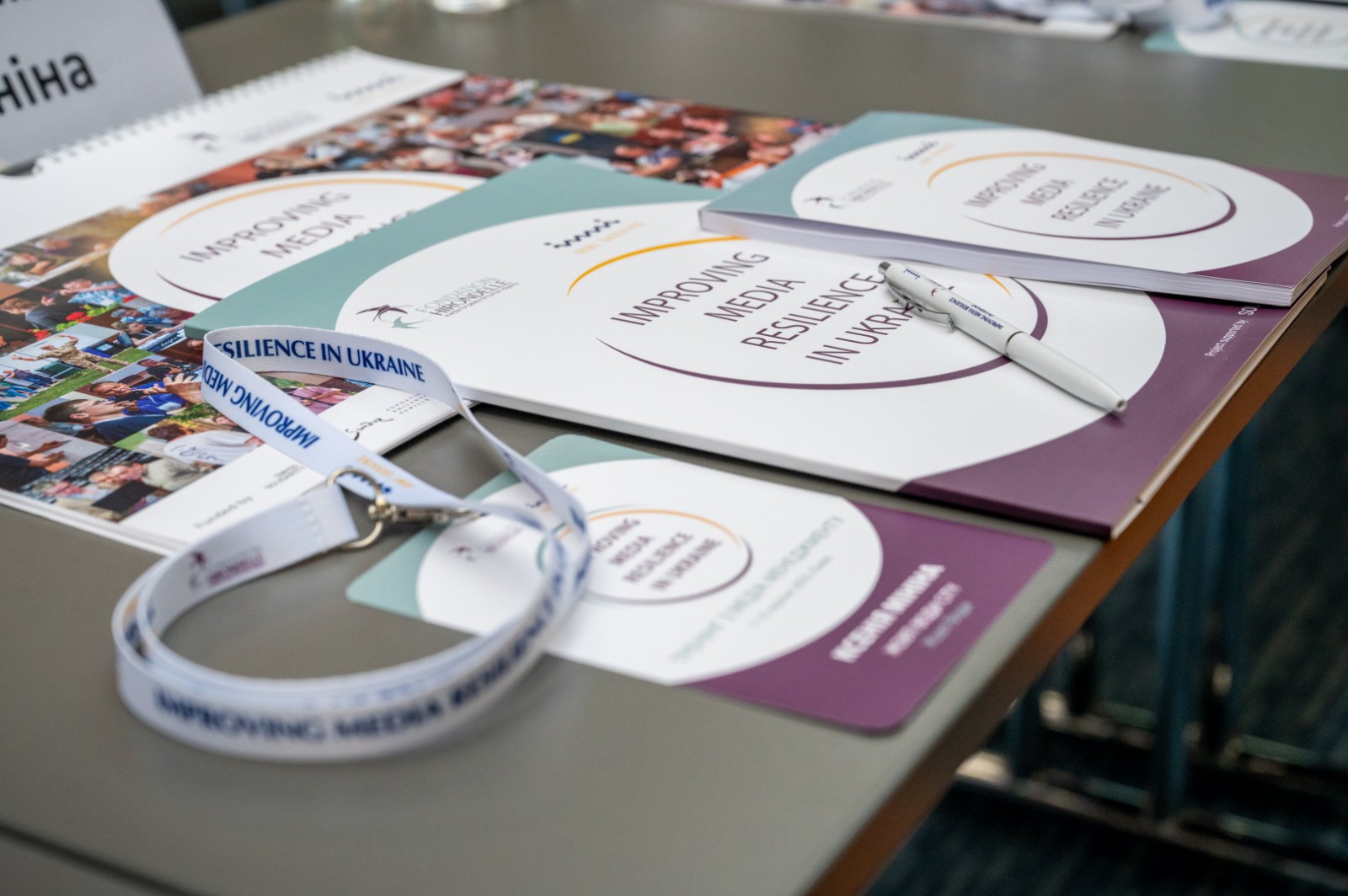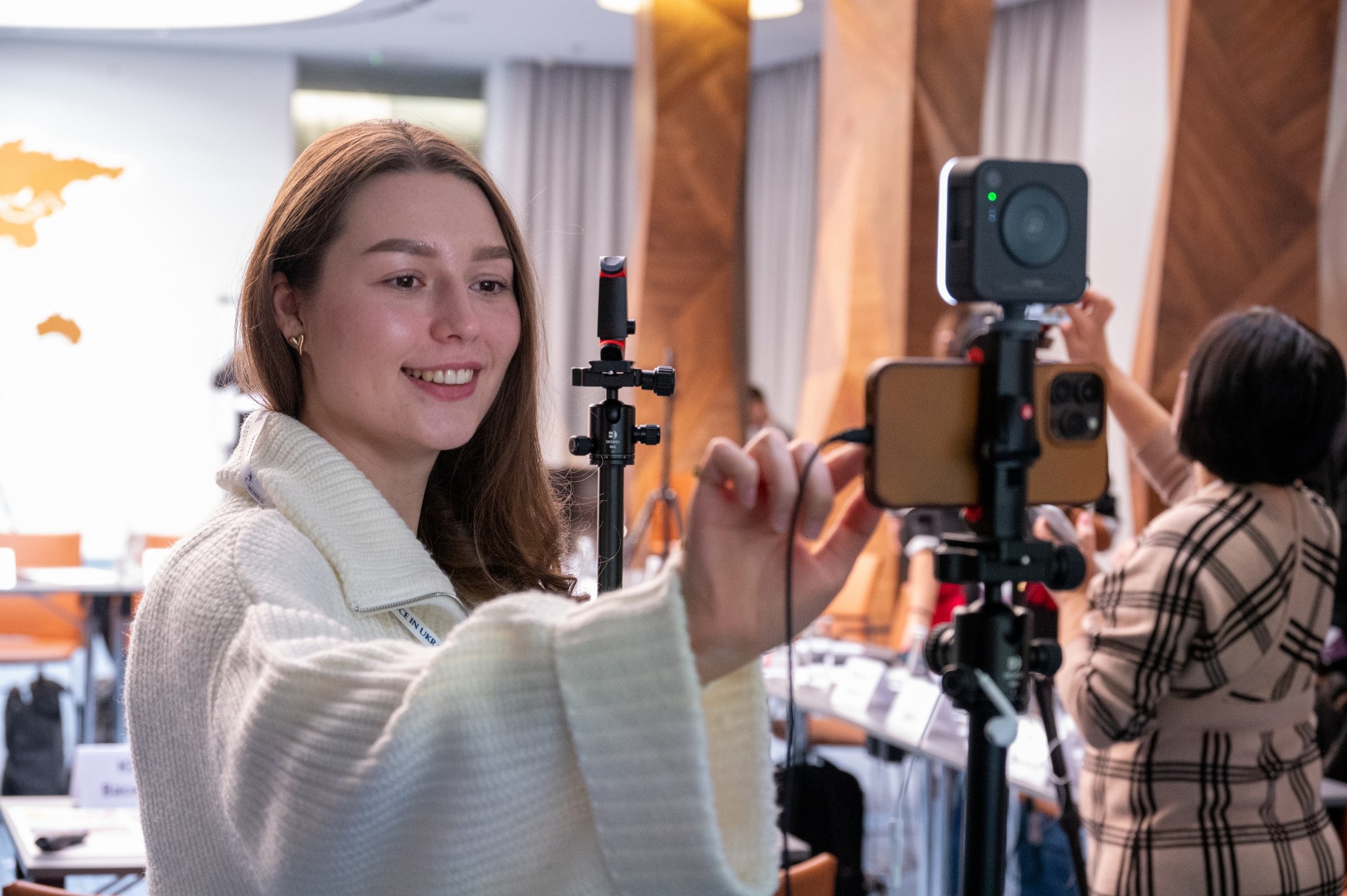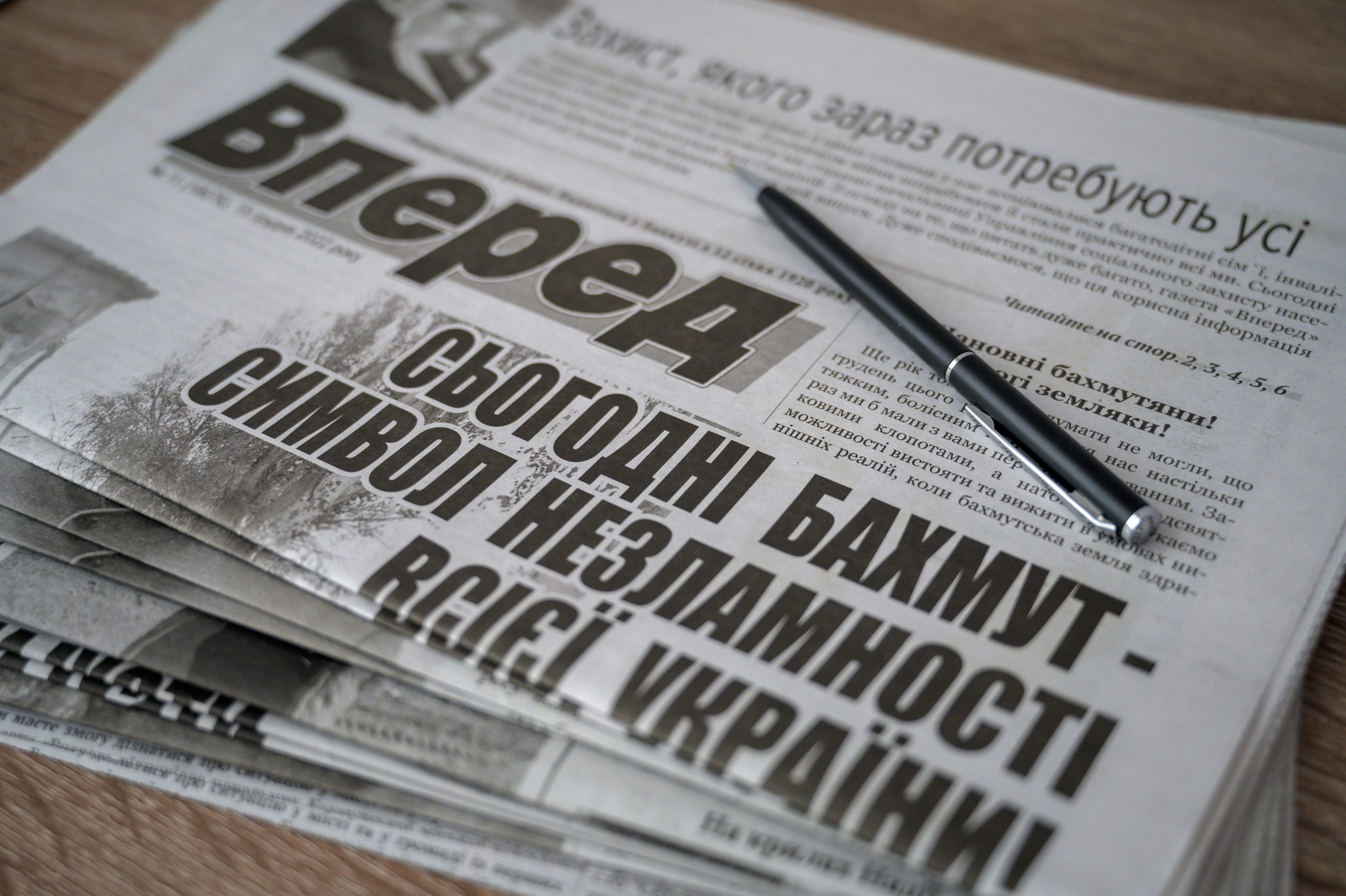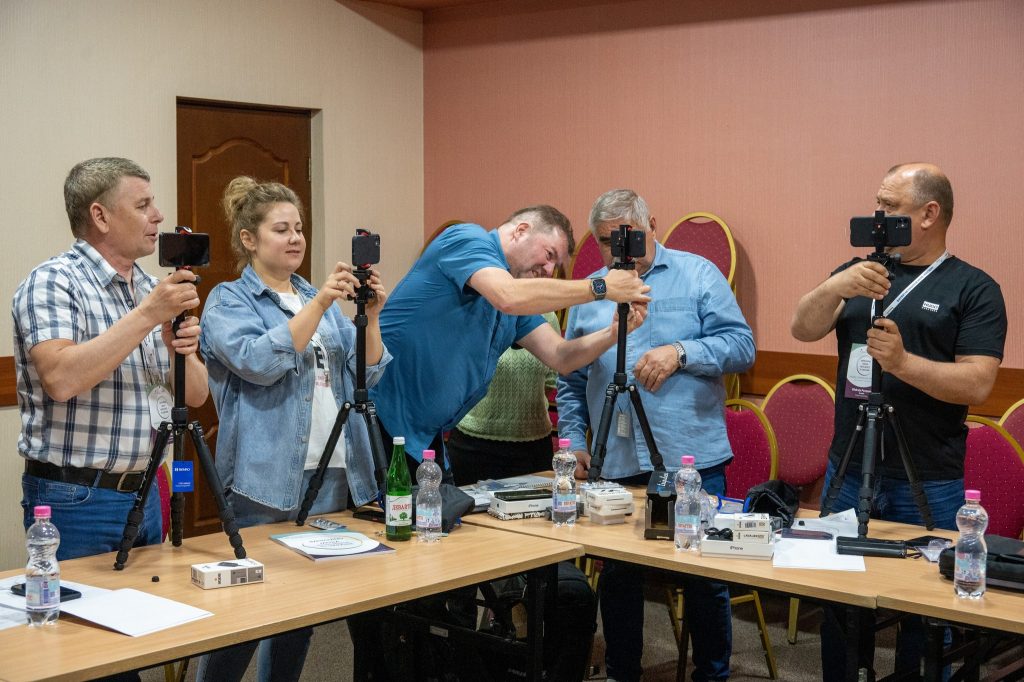
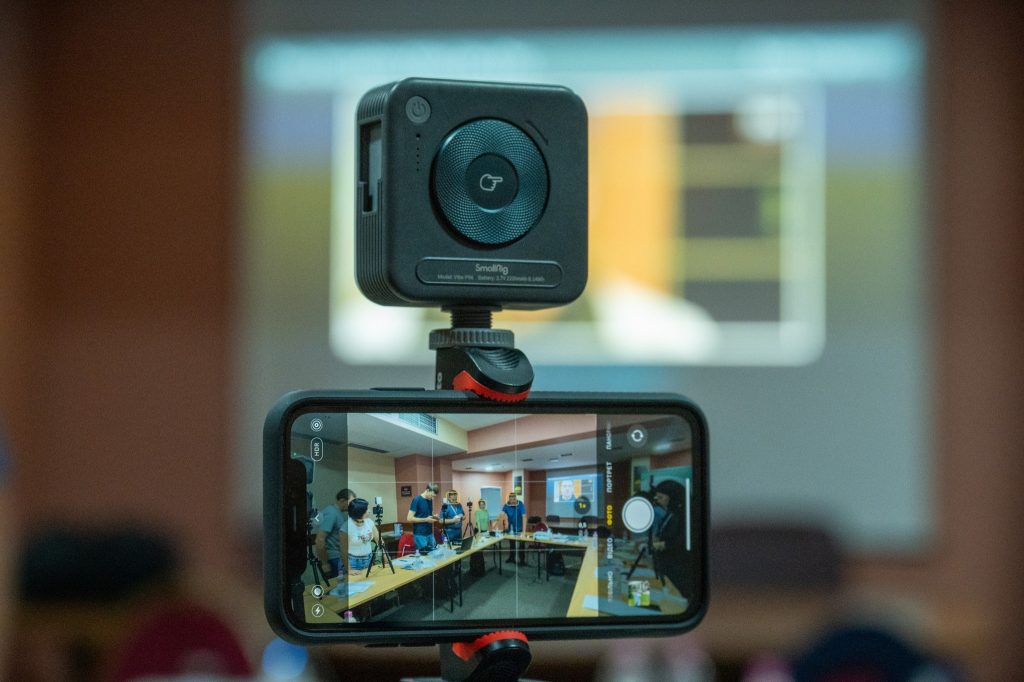


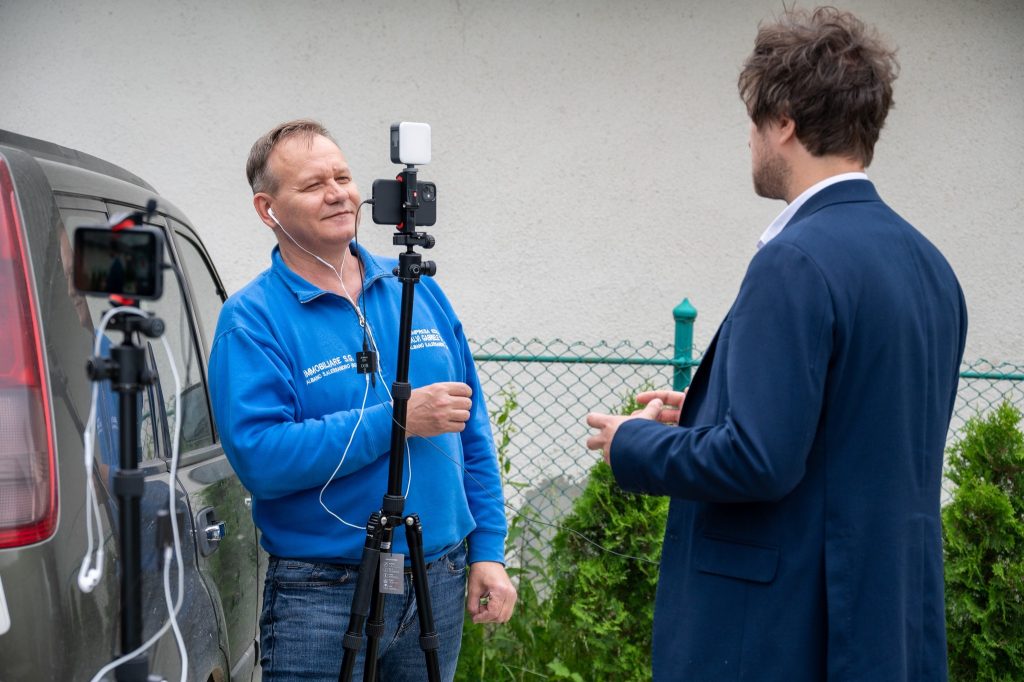
How can you master interview and video shooting techniques if you are a journalist for a print or online publication (or even work “on multiple information fronts”), but with no relevant experience? This week a mobile journalism training was held in Ivano-Frankivsk for representatives of editorial offices that we support as part of “Improving Media Resilience in Ukraine” project.
The training contained minimum of theory and maximum of practice. Why mobile journalism? The topic was chosen at the request of the editorial offices. The ability to produce high-quality content with the tools that are at hand has become particularly relevant in the conditions of war, the loss of equipment by displaced editorial offices that remained in the occupied territories or was destroyed during enemy bombing. In addition, almost all print publications have added online versions. Mastering mobile technologies means making it easier for the audience to access information, make it more complete, and make the news more mobile. New knowledge and increased capacity make the media more sustainable and competitive.
So, we practiced using a smartphone “to the fullest” for shooting and even editing videos, learned how to make use of sound equipment, master the sound interface and additional video shooting techniques, and how to build out a frame. Where exactly to shoot an interview, how to avoid mistakes when recording and editing it. The trainers taught the trainees how to plan a shoot and tell a story.
Then practice followed – a chance to use new knowledge and skills to collect material for stories. Impressive and inspiring at the same time, as we expected, were the meetings with the protagonists working in the first volunteer surgical hospital. These are volunteer doctors, displaced persons from other regions of Ukraine, who are now rescuing, treating, rehabilitating, and supporting Ukrainian soldiers. Patients also undergo psychological rehabilitation in the center, where, among other things, they are also offered hippotherapy. Is the importance of psychological support for people who have returned from the war for the social cohesion even be brought up?..
“We worked with journalists who came from different media outlets all over Ukraine,” says coach Velislav Radev, whose listeners and viewers were forced to leave their homes because of the war. Editors and journalists in such circumstances must be particularly resourceful to deliver content to their audience. Actually, this is what we learned: how to edit videos, work with a new tool for media professionals.
These days there were very tense moments – as the participants say, from complete rejection of new forms of work to the satisfaction with the fact that everything “turned out so well”. TV people willingly supported their colleagues and shared their experience. And here is the finish line: at the impromptu end of the film festival training, participants presented stories that will later be posted in the media where they work.
– This is the first time I’ve come across such equipment, even this tripod – it’s very professional and easy to use. The topic is new, it was challenging to master, but I have learned something, and we need to move on. All the days of the training were full of practice, the principles of composition, editing, video sequence preparation I remembered the best. My intention is to put those in practice, even though I am working for a print media outlet. You can use it for announcements or make interviews, you can shoot our events, – says Tetiana Luchinskaya, Editor of the Mayak newspaper (Bohodukhiv).
– It was very useful for us, because we do both print and online, producing content for social media and the YouTube channel. Of course, we don’t have the same experience as TV people, but we want to be faster, more mobile, do bigger reports, going to the field without bulky equipment, but with the gadgets we have been trained to use. ‘People are interested in videos, we could develop the YouTube channel with a QR code to send the users to the channel, – says Anastasia Kovalchuk, a journalist for Dniprovska Pravda.
Each editorial office received professional equipment for its own use – smartphones, microphones, tripods, adapters, LED lighting, and professional backpacks for equipment. We hope this will help the journalists implement what they have been striving for.
The second group of editorial staff representatives to work on the topic will meet in Odesa.
The trainings are part of “Improving Media Resilience in Ukraine” project, which IRMI has been implementing in partnership with Fondation Hirondelle. The project is funded by Swiss Solidarity.


